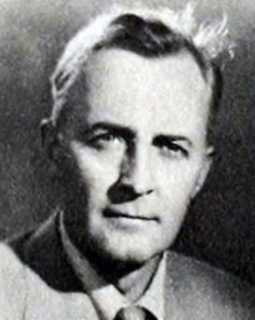A Quote by Wilhelm von Humboldt
No matter how good or great a man may be, there is yet a better and a greater man within him.
Related Quotes
The sovereign good of man is a mind that subjects all things to itself and is itself subject to nothing; such a man's pleasures are modest and reserved, and it may be a question whether he goes to heaven, or heaven comes to him; for a good man is influenced by God Himself, and has a kind of divinity within him.
Who is righteous? Anyone who is repenting. No matter how bad he has been, if he is repenting he is a righteous man. There is hope for him. And no matter how good he has been all his life, if he is not repenting, he is a wicked man. The difference is which way you are facing. The man on the top of the stairs facing down if much worse off than the man on the bottom step who is facing up. The direction we are facing, that is repentance; and that is what determines whether we are good or bad.
You are different from the really great man in only one thing: The great man, at one time, also was a very little man, but he developed one important ability: he learned to see where he was small in his thinking, and actions. Under the pressure of some task which was dear to him he learned better and better to sense the threat that comes from his smallness and pettiness. The great man, then, knows when and in what he is a little man.
No matter how well-born, how intelligent, how highly educated, how virtuous, how rich, how refined, the women of to-day constitutea political class below that of every man, no matter how base-born, how stupid, how ignorant, how vicious, how poverty-stricken, how brutal. The pauper in the almshouse may vote; the lady who devotes her philanthropic thought to making that almshouse habitable, may not. The tramp who begs cold victuals in the kitchen may vote; the heiress who feeds him and endows universities may not.
It may not be nice to be good, little 6655321. It may be horrible to be good. And when I say that to you I realize how self-contradictory that sounds. I know I shall have many sleepless nights about this. What does God want? Does God want goodness or the choice of goodness? Is a man who chooses the bad perhaps in some way better than a man who has the good imposed upon him? Deep and hard questions, little 6655321.
Wine makes a man better pleased with himself. I do not say that it makes him more pleasing to others. Sometimes it does. But the danger is, that while a man grows better pleased with himself, he may be growing less pleasing to others. Wine gives a man nothing. It neither gives him knowledge nor wit; it only animates a man, and enables him to bring out what a dread of the company has presented.




































